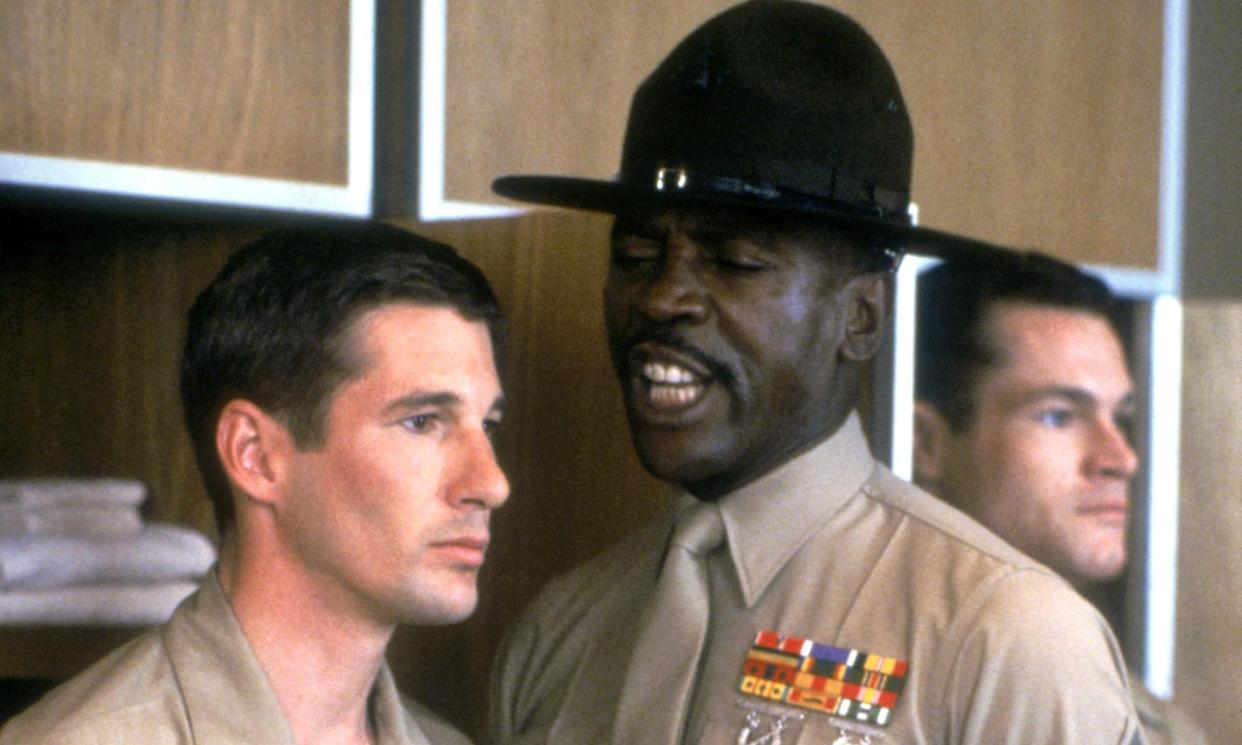Louis Gossett Jr obituary

The actor Lou Gossett Jr, who has died aged 87, is best known for his performance in An Officer and A Gentleman (1982) as Gunnery Sergeant Emil Foley, whose tough training transforms recruit Richard Gere into the man of the film’s title. He was the first black winner of an Academy Award for best supporting actor, and only the third black actor (after Hattie McDaniel and Sidney Poitier) to take home any Oscar.
The director, Taylor Hackford, said he cast Gossett in a role written for a white actor, following a familiar Hollywood trope played by John Wayne, Burt Lancaster, Victor McLaglen or R Lee Ermey, because while researching he realised the tension of “black enlisted men having make-or-break control over whether white college graduates would become officers”. Gossett had already won an Emmy award playing a different sort of mentor, the slave Fiddler who teaches Kunta Kinte the ropes in Roots (1977), but he was still a relatively unknown 46-year-old when he got his breakthrough role, despite a long history of success on stage and in music as well as on screen.
Born in Sheepshead Bay, Brooklyn, Louis was the son of Helen (nee Wray), a nurse, and Louis Sr, a porter. As a child he suffered from polio, but became a high school athlete before a basketball injury led to his joining the drama club. His teacher encouraged him to audition professionally, and at 17 he was on Broadway playing a troubled child in Take a Giant Step, which won him a Donaldson award for best newcomer.
He won a drama scholarship to New York University, but continued working, in The Desk Set (1955), and made his television debut in two episodes of the NBC anthology show The Big Story. In 1959 he was cast with Poitier and Ruby Dee in Raisin in the Sun, and made his film debut reprising his role in 1961. On Broadway that year he played in Jean Genet’s The Blacks, in an all-star cast with James Earl Jones, Cicely Tyson, Roscoe Lee Brown, Godfrey Cambridge and a young Maya Angelou; it was the decade’s longest-running show.
Gossett was also active in the Greenwich Village folk music scene. He released his first single Hooka Dooka, Green Green in 1964, followed by See See Rider, and co-wrote the anti-war hit Handsome Johnny with Richie Havens. In 1967 he released another single, a drums and horns version of Pete Seeger’s anti-war hymn Where Have All the Flowers Gone. He was in the gospel musical Tambourines to Glory (1963) and in producer Mike Todd’s America, Be Seated at the 1964 New York World’s Fair.
His plays became more limited: The Zulu and the Zayda and My Sweet Charlie; the very short run of Carry Me Back to Morningside Heights, in which he played a black man owning a white slave; and a revival of Golden Boy (1964), with Sammy Davis Jr. His final Broadway part was as the murdered Congolese leader Patrice Lamumba, in Conor Cruise O’Brien’s Murderous Angels (1971). Gossett had played roles in New York-set TV series such as The Naked City, but he began to make a mark in Hollywood, despite LAPD officers having handcuffed him to a tree, on “suspicion”, in 1966.
On TV he starred in The Young Rebels (1970-71) set in the American revolution. In film, he was good as a desperate tenant in Hal Ashby’s Landlord (1970) and brilliant with James Garner in Skin Game (1971), taking part in a con trick in which Garner sells him repeatedly into slavery then helps him to escape.
In 1977, alongside Roots, he attracted attention as a memorable villain in Peter Yates’s hit The Deep, and got artistic revenge on the LAPD in Robert Aldrich’s The Choirboys. The TV movie of The Lazarus Syndrome (1979) became a series in which Gossett played a realistic hospital chief of staff set against an idealistic younger doctor. He played the black baseball star Satchel Paige in the TV movie Don’t Look Back (1981); years later he had a small part as another Negro League star, Cool Papa Bell, in The Perfect Game (2009).
After his Oscar, he played another assassinated African leader, in the TV mini-series Sadat, reportedly approved for the role by Anwar Sadat’s widow Jihan. Though he remained a busy working actor, good starring roles in major productions eluded him, as producers fell back on his drill sergeant image. He was Colonel “Chappy” Sinclair in Iron Eagle (1986) and its three dismal sequels.
But in 1989 he starred in Dick Wolf’s TV series Gideon Oliver, as an anthropology professor solving crimes in New York. And he won a best supporting actor Golden Globe for his role in the TV movie The Josephine Baker Story (1991). He revisited the stage in the film adaptation of Sam Shepard’s Curse of the Starving Class (1994).
Gossett twice received the NAACP’s Image Award, and another Emmy for producing a children’s special, In His Father’s Shoes (1997). In 2006 he founded the Eracism Foundation, providing programmes to foster “cultural diversity, historical enrichment and anti-violence initiatives”. Despite an illness eventually linked to toxic mould in his Santa Monica home, he kept working with a recurring part in Stargate SG-1 (2005-06). A diagnosis of prostate cancer in 2010 hardly slowed him down.
Most recently, he played Will “Hooded Justice” Reeves in the TV series Watchmen (2019), in the series Kingdom Business, about the gospel music industry, and in the 2023 musical remake of The Color Purple.
His first marriage, to Hattie Glascoe, in 1967, was annulled after five months; his second, to Christina Mangosing, lasted for two years from 1973; and his third, to Cyndi (Cynthia) James, from 1987 to 1992. He is survived by two sons, Satie, from his second marriage, and Sharron, from his third.
• Louis Cameron Gossett Jr, actor, born 27 May 1936; died 28 March 2024


